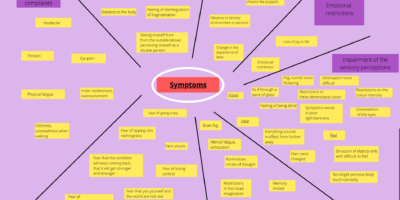Depersonalisation/derealisation: triggers feelings of unreality and alienation
Many people who experience feelings of alienation or unreality wonder what triggers them. In which situations can depersonalisation or derealisation occur?
Depersonalisation and derealisation are normal and common
As a general rule, feelings of depersonalisation or derealisation are very common. Most people experience such states from time to time in their lives. This is nothing unusual! How often do we hear someone say, „I feel like I’m beside myself right now!“
Factors contributing to the short-term occurrence of feelings of alienation and unreality
There are many factors that can trigger feelings of unreality and alienation. These include:
- Substances that affect the body, such as alcohol, drugs, or certain medications.
- Trance-like states such as meditation or repetitive movements, monotonous activities.
- Physical or psychological stress conditions such as sleep deprivation, noise, bright artificial light, unfamiliar environments, sensory overload, or periods of high strain.
- Situations that provoke strong emotions, such as life-threatening experiences.
- Physical conditions such as hormonal fluctuations, the aura phase before a migraine, or epileptic seizures.
In most cases, feelings of unreality and alienation subside once the person leaves the situation or after some time has passed.
Triggers for persistent feelings of unreality or alienation
Unfortunately, feelings of depersonalisation and derealisation do not always disappear on their own after a short time. Sometimes they persist for a longer period or recur in a disruptive manner. What can be the triggers for prolonged experiences of alienation or unreality?
It is not always possible to identify specific triggers for long-lasting or recurrent feelings of alienation or unreality. Studies (Baker et al. 2003; Medford et al. 2003; Michal et al. 2009b) have shown that in approximately 50% of all cases of persistent depersonalisation or derealisation, no concrete trigger can be identified. In the other 50%, prolonged feelings of alienation or unreality are primarily triggered by the use of illegal drugs (especially marijuana) and severe emotional stress.
Emotional stress factors include:
- Mental and/or physical overload
- „Falling into a slump“ after a challenging period, e.g., after a strenuous exam phase
- Persistent loneliness
- The feeling of being alone without support
- Confining living conditions
- The inability to free oneself from something, e.g., a harmful relationship
- Trauma
- Intense fear of death
For some individuals, such triggers lead to the consolidation of feelings of depersonalisation or derealisation, causing them to persist permanently or recur in a disruptive manner.
Triggering and maintaining factors
Of course, it is helpful to know what has triggered distressing feelings of unreality or alienation. However, more crucial for overcoming these states is understanding what maintains these feelings – what contributes to them not fading away. This also represents a central aspect of psychotherapeutic treatment for such symptoms.

Schreibe eine Antwort